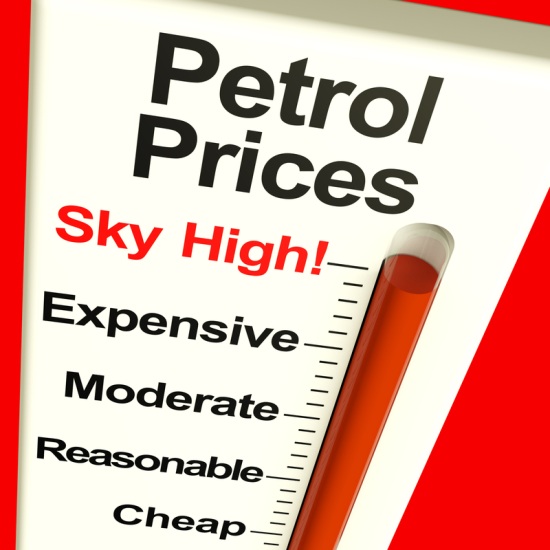Motorists across the country prepare to groan despairingly – petrol and diesel prices are set to rise yet again. After a brief respite during the Olympics when petrol prices dipped, known as the “summer low”, the AA have warned that new record highs may be recorded within a month, with prices expected to rise by around six pence per litre.

Petrol prices have already risen by 3.5 pence in the month since mid-July, with 0.5 pence of this rise occurring in the past week alone. Diesel is not far behind, having risen 3.19 pence in the same space of time.
The AA blames a sharp rise in the wholesale cost of fuel for the rising prices at the pumps, partly due to a worldwide rise in oil prices and speculators pushing the prices up to make more profit for their companies. At present, petrol is selling at an average cost of 136.06 pence per litre – yet with the predicted six pence rise in price, motorists in the UK could once more be facing the record prices set in April of this year, which amounted to 142.48 pence per litre for petrol and 147.93 pence per litre for diesel.
To put these prices in perspective, the cost of filling an average family car with a 70 litre engine would rise by £4.10 – which may seem like a small amount, but if the family fill their car on a weekly basis, this means an annual extra cost of over £200.
Unfortunately, the bad news doesn’t end there, as Chancellor George Osborne has revealed plans to add additional tax to fuel in the New Year – meaning that by the end of 2013, British drivers could be paying an extra seven pence per litre in tax every time they fill up their car. One of these increases is due to take place on January 1st, when an additional three pence per litre is set to be added to the already high costs motorists face. This increase was due to take place on August 1st this year, but has been deferred – and now Mr Osborne faces calls to once more delay, or even scrap altogether, this further pressure on the motorist’s pocket.
However, should the proposed tax hikes take place commercial property retailers have warned that the price of petrol could hit an astronomical £1.50 per litre in 2013. This would certainly have a negative effect upon consumers, as the cost of filling up an average 70 litre family car would rise above £100 for the first time, meaning that many families would once more see a marked dip in their disposable income.
Head of public affairs for the AA, Paul Watters, said; “Falling pump prices in the UK lasted just 75 days and now they’re heading up at a rate which once again threatens to undermine the Bank of England’s inflation target.
“In six weeks, £10 has been added to the monthly petrol costs of a two car family in the UK.”
The AA also reported that competition between supermarkets had acted as a buffer between consumers and the rising price of oil, as each wish to offer cheaper prices in a bid to attract customers to their forecourts. However, with the prices rising so steeply, it can only be a matter of time before promotions such as Asda’s 2 pence off every litre of fuel become unprofitable and prices rocket.
Brian Madderson, Petrol Retailers’ chairman, added; “This is really bad news for motorists and retailers alike.
“The full effect of the wholesale price rise of nearly 10p per litre since late June has yet to be passed on at the pumps.
“Average pricing for petrol across the UK has now risen to 136p per litre and could yet return to 140p per litre by the end of August. This will affect the many families that have planned to take a post-Olympic holiday.”
Do you believe that the rises in fuel tax by the Government are justified, especially considering the fact that price rises in many areas are not backed up by increases in the average person’s wage? With the rising cost of public transport and fuel fast becoming unaffordable for many people, what do you think the solution is to prevent Britain grinding to a standstill?
Previous Post
Volume of Distressed Properties Down